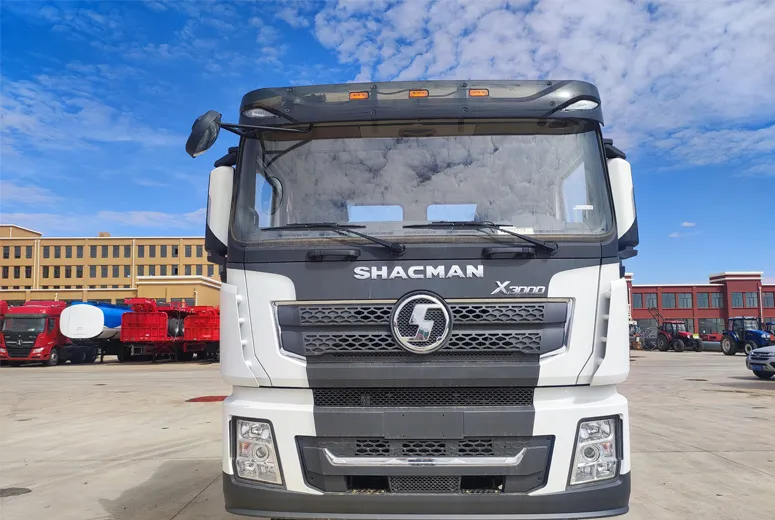heavy duty hybrid trucks
The Rise of Heavy-Duty Hybrid Trucks A Sustainable Future for Freight Transportation
As the world increasingly recognizes the urgent need for sustainable practices across various sectors, the transportation industry is undergoing a significant transformation. Among the innovations driving this change are heavy-duty hybrid trucks, which are not only enhancing fuel efficiency but also contributing to a reduction in greenhouse gas emissions. This article explores the benefits, challenges, and future prospects of heavy-duty hybrid trucks in the freight transportation sector.
Understanding Heavy-Duty Hybrid Trucks
Heavy-duty hybrid trucks combine traditional internal combustion engines with electric propulsion systems. This dual powertrain allows them to operate efficiently under various conditions, making them ideal for long-haul freight operations. Hybrid technology typically consists of a diesel or gasoline engine paired with an electric motor and a battery system that captures and stores energy. By utilizing both power sources, these trucks can optimize fuel consumption, especially in urban environments where frequent stops and starts are common.
Environmental Benefits
One of the most significant advantages of heavy-duty hybrid trucks is their potential to reduce emissions and promote sustainability. Conventional freight trucks are known to be major contributors to air pollution, but hybrid trucks can cut emissions by up to 30% compared to their diesel counterparts. By utilizing electric power during low-speed operations or when idling, hybrid trucks significantly decrease their reliance on fossil fuels, leading to a cleaner environment.
Furthermore, as regulations regarding emissions become stricter, adopting hybrid technology can help trucking companies comply with existing and forthcoming legislation. This proactive approach not only aids in meeting environmental standards but also enhances the company’s reputation as a responsible and forward-thinking organization.
Economic Advantages
heavy duty hybrid trucks

While the initial investment in heavy-duty hybrid trucks can be higher than that of traditional trucks, the long-term economic benefits often outweigh these costs. Hybrid trucks generally experience lower fuel consumption, which translates to reduced operating costs over time. Additionally, numerous governments and organizations offer incentives for adopting greener technologies, such as tax breaks, grants, and reduced tolls, making the transition to hybrid trucks more financially viable.
Moreover, with the rising cost of diesel fuel, companies adopting hybrid trucks may find themselves better insulated from fluctuating fuel prices. As these trucks deliver higher fuel efficiency, they can ultimately lead to significant cost savings, improving the bottom line for logistics providers.
Challenges on the Road Ahead
Despite the undeniable advantages, the widespread adoption of heavy-duty hybrid trucks is not without challenges. One notable obstacle is the availability of charging infrastructure. While electric vehicle infrastructure is expanding rapidly, the availability of high-capacity charging stations specifically designed for heavy-duty trucks remains limited. To facilitate the transition to hybrid technology, investment in charging networks is essential.
Additionally, some trucking companies may exhibit hesitance due to concerns about performance. While hybrid trucks generally perform well, there is sometimes a perception that they cannot match the power or reliability of traditional diesel trucks. Continuous advancements in hybrid technology and real-world operation demonstrations will be critical in dispelling these myths and showcasing the capabilities of heavy-duty hybrids.
The Future of Heavy-Duty Hybrid Trucks
The future looks promising for heavy-duty hybrid trucks as technology continues to advance. Innovations in battery technology, such as increased energy density and faster charging capabilities, are expected to enhance the performance and appeal of hybrid trucks. Moreover, as more companies commit to sustainability goals, the demand for hybrid vehicles is likely to increase, leading to more competitive prices and improved technology.
In conclusion, heavy-duty hybrid trucks represent a significant step towards a more sustainable freight transportation model. With their ability to reduce emissions, lower operating costs, and comply with strict environmental regulations, they provide a viable pathway for the trucking industry to reduce its ecological footprint. While challenges remain, the ongoing advancements in technology and infrastructure are expected to pave the way for wider adoption, ultimately revolutionizing the future of freight transportation. As we look ahead, the integration of hybrid technology in heavy-duty trucks is not just a trend; it is a necessary evolution for a sustainable and efficient transportation system.
-
Industrial Plastic Pipe Fittings-Chenyang Group|Durable, Customizable, Versatile SolutionsNewsAug.13,2025
-
Plastic Industrial Pipe Fittings - Chenyang Group | Durable, Customizable, VersatileNewsAug.12,2025
-
Industrial Plastic Pipe Fittings-Chenyang Group|Durable Solutions,Custom SizesNewsAug.12,2025
-
Industrial Pipe Fittings | Chenyang Group - Customization&DurabilityNewsAug.12,2025
-
plastic pipe fittings-chenyang group|Durable,CustomizableNewsAug.12,2025
-
DBTE Series LZ504-D1 Compact Tractor: Versatile & PowerfulNewsAug.12,2025
Popular products

























